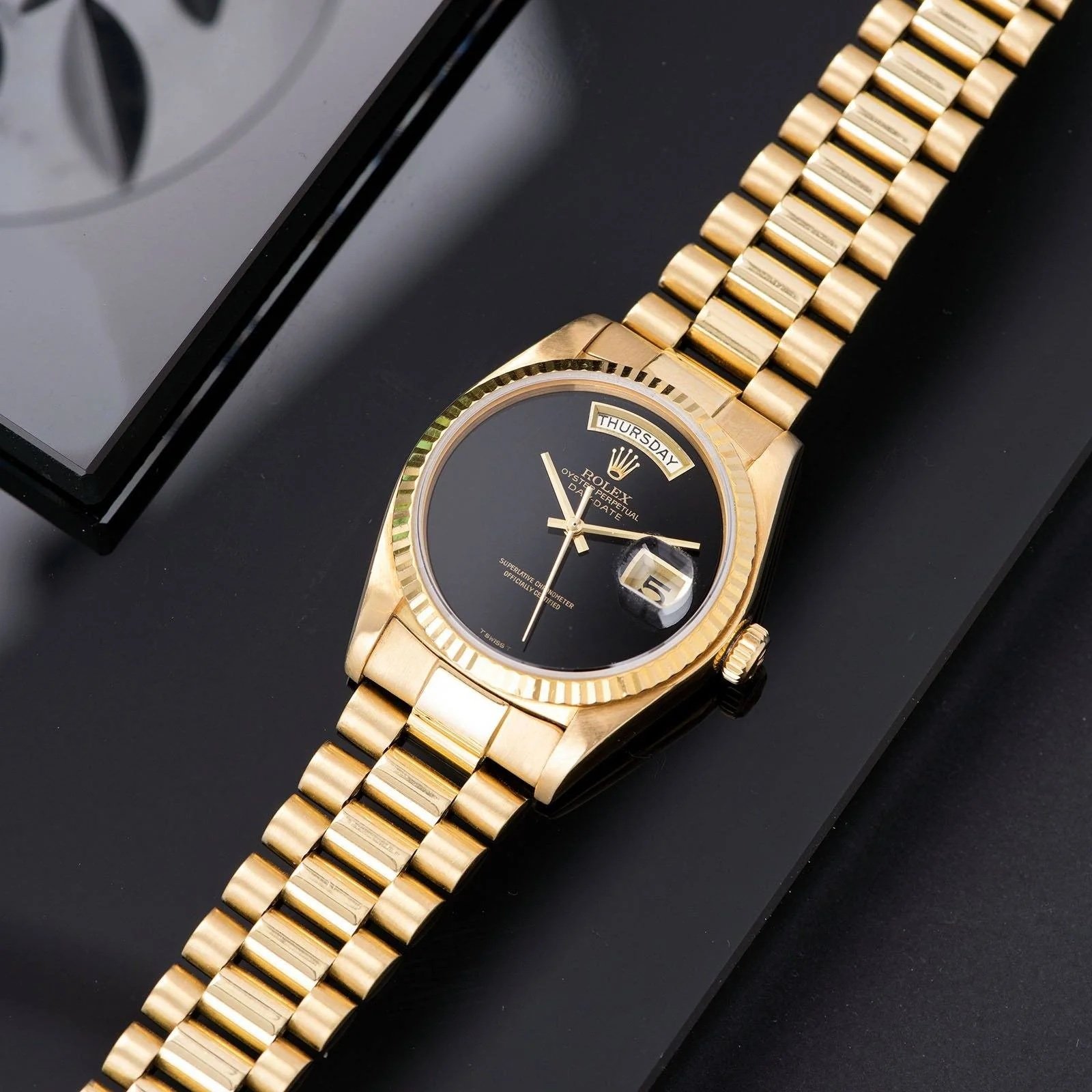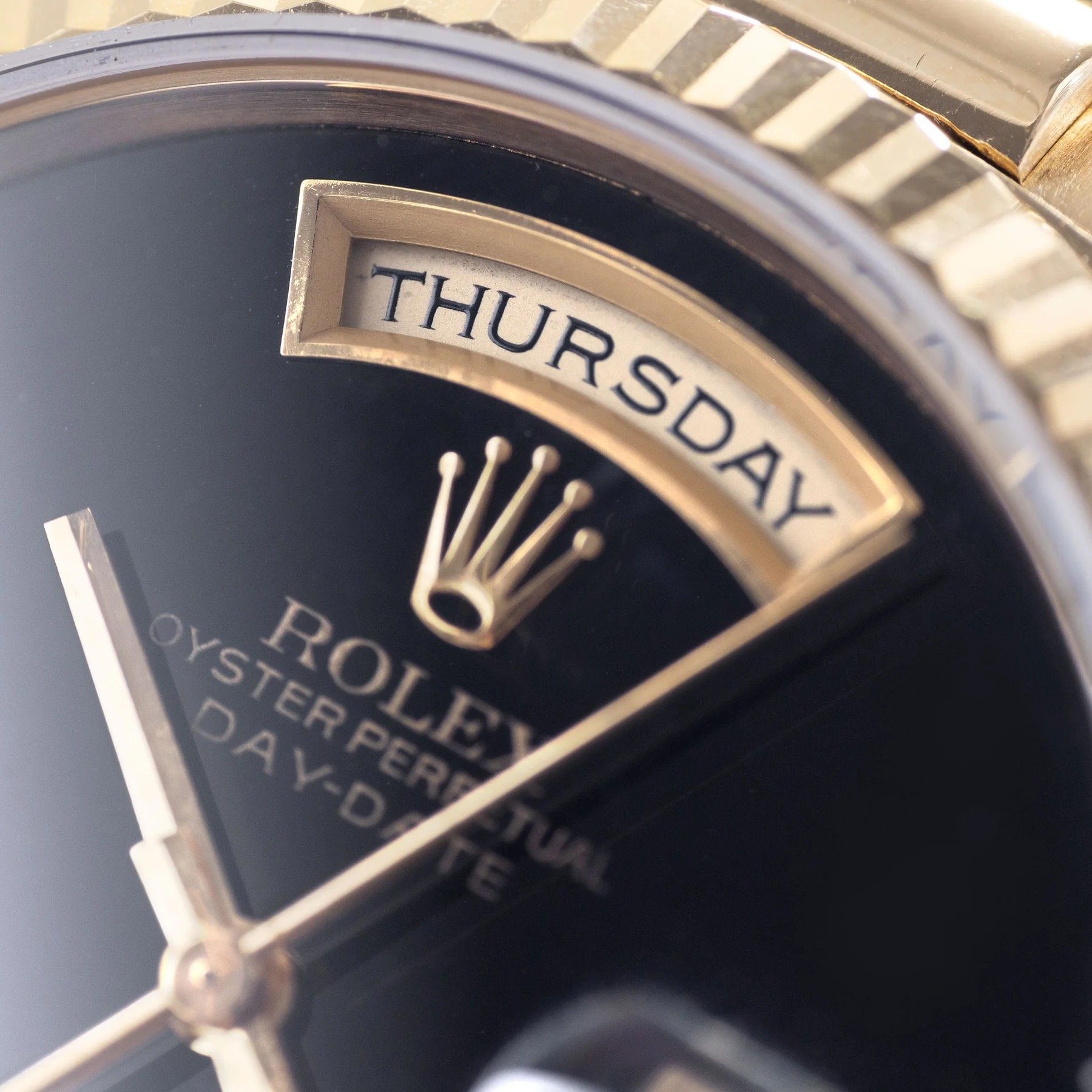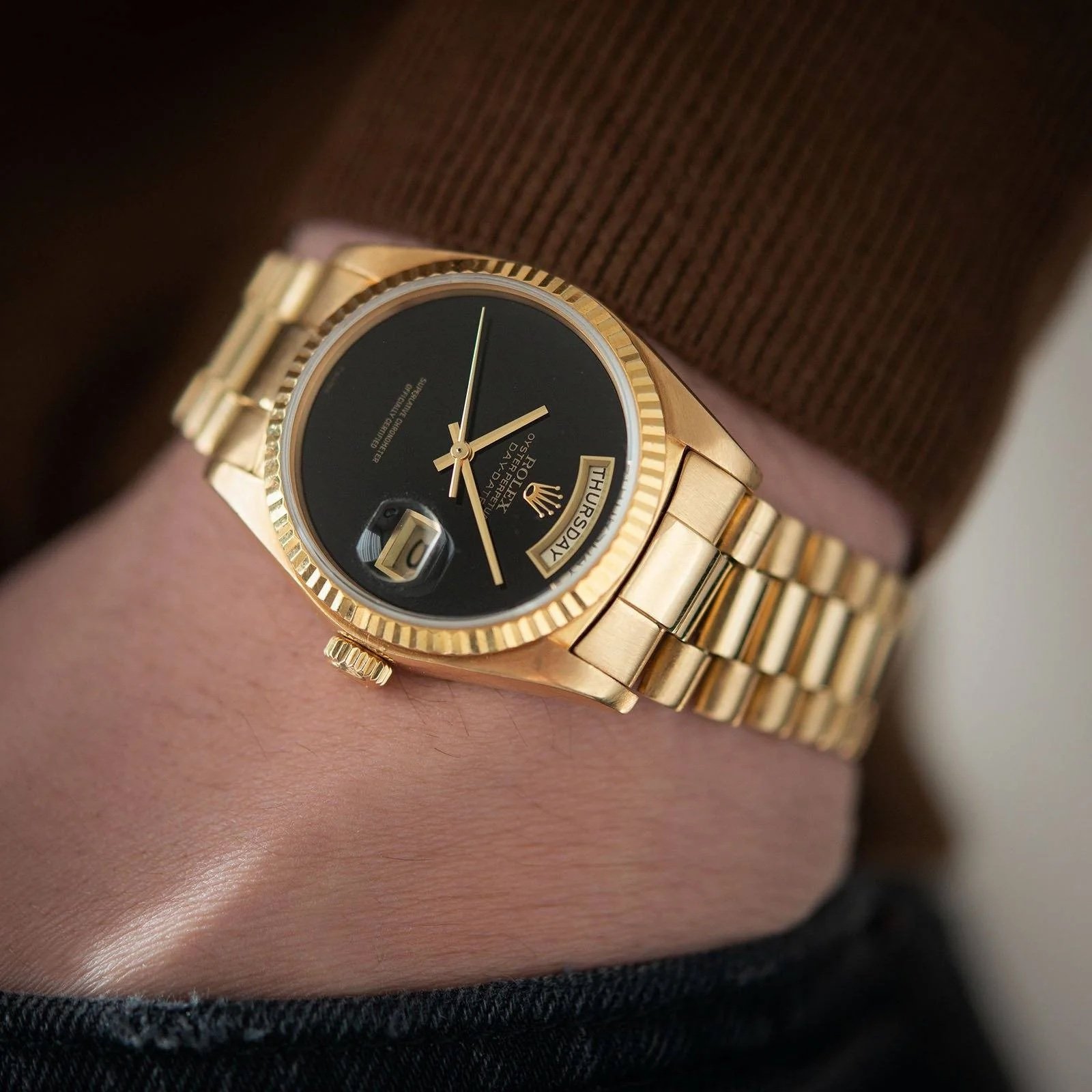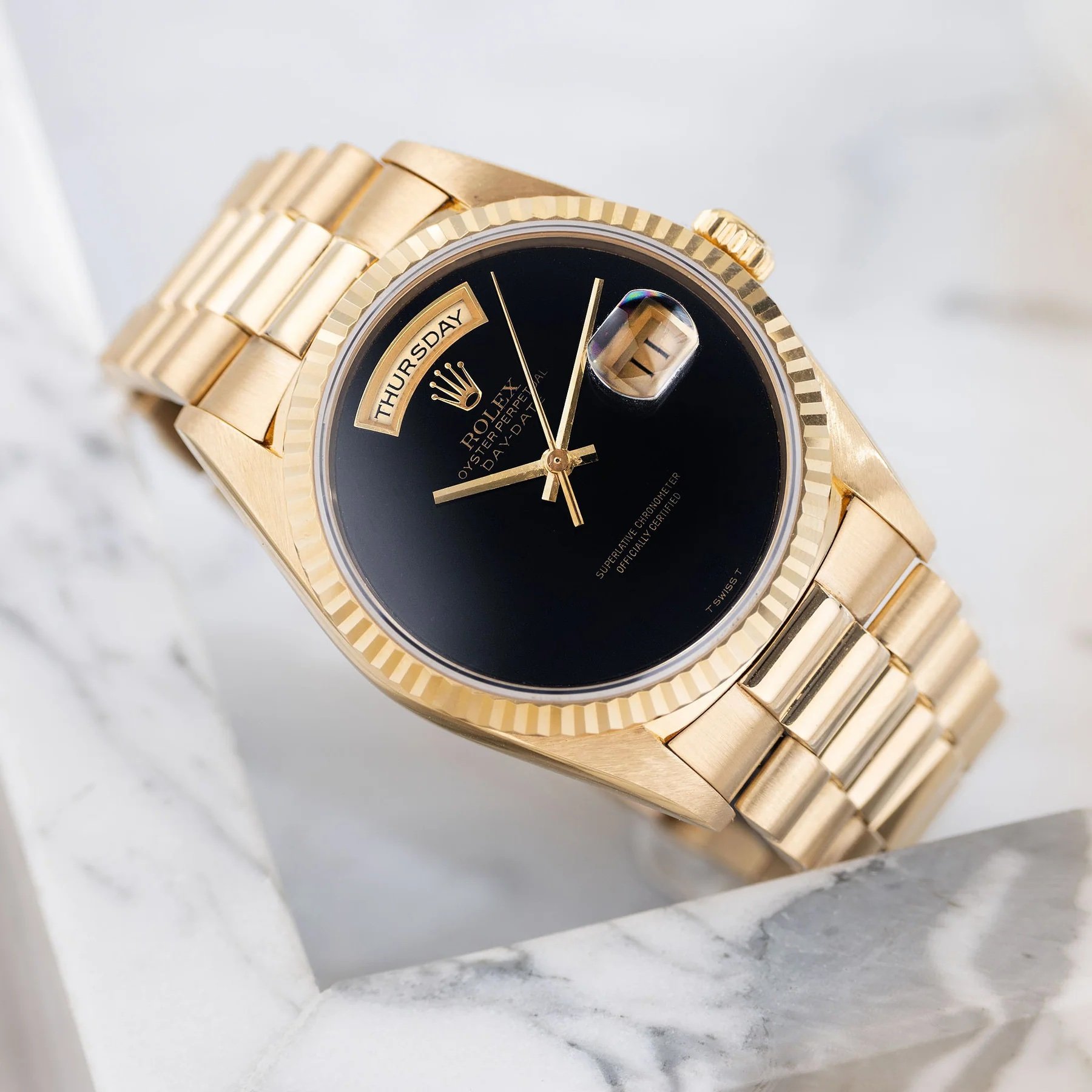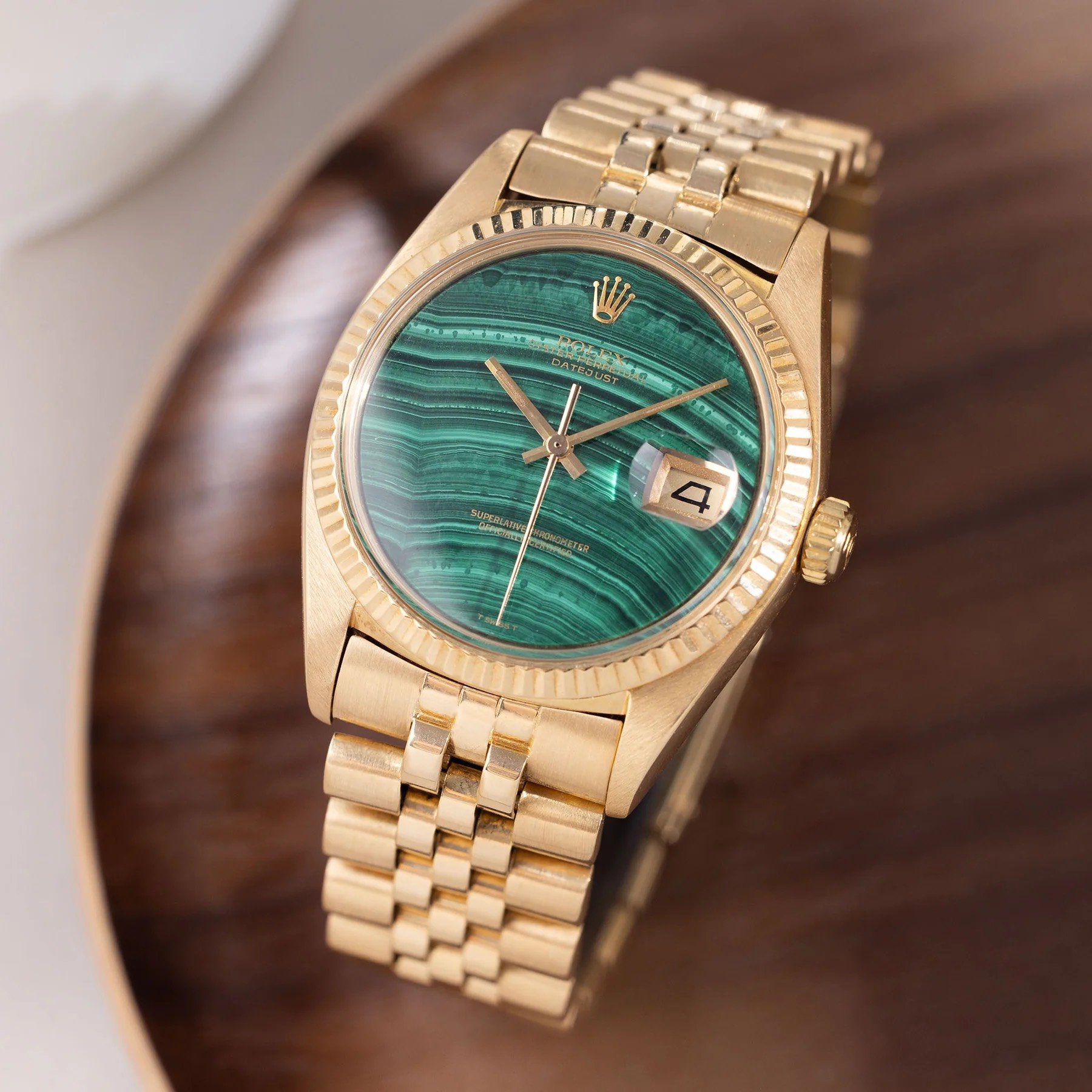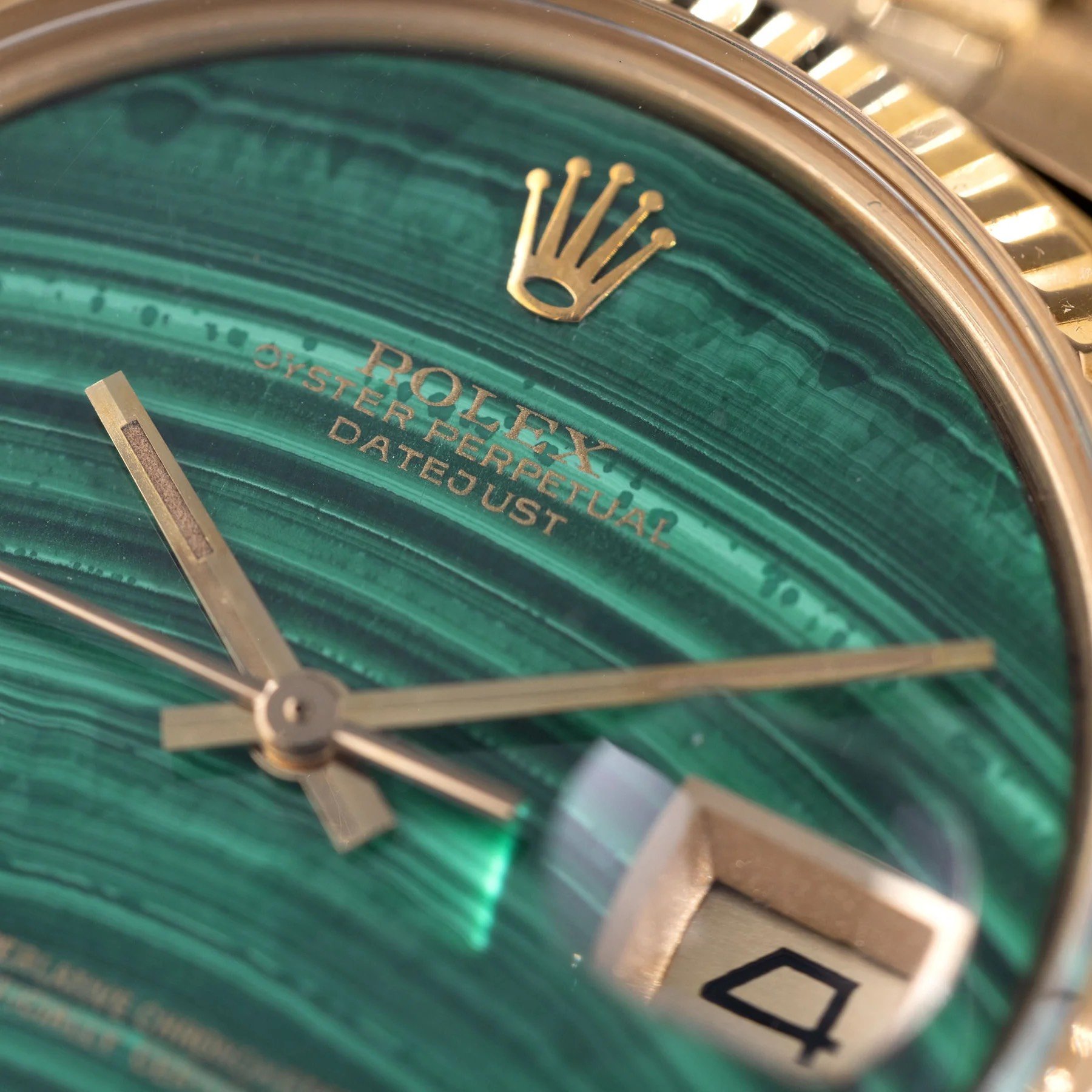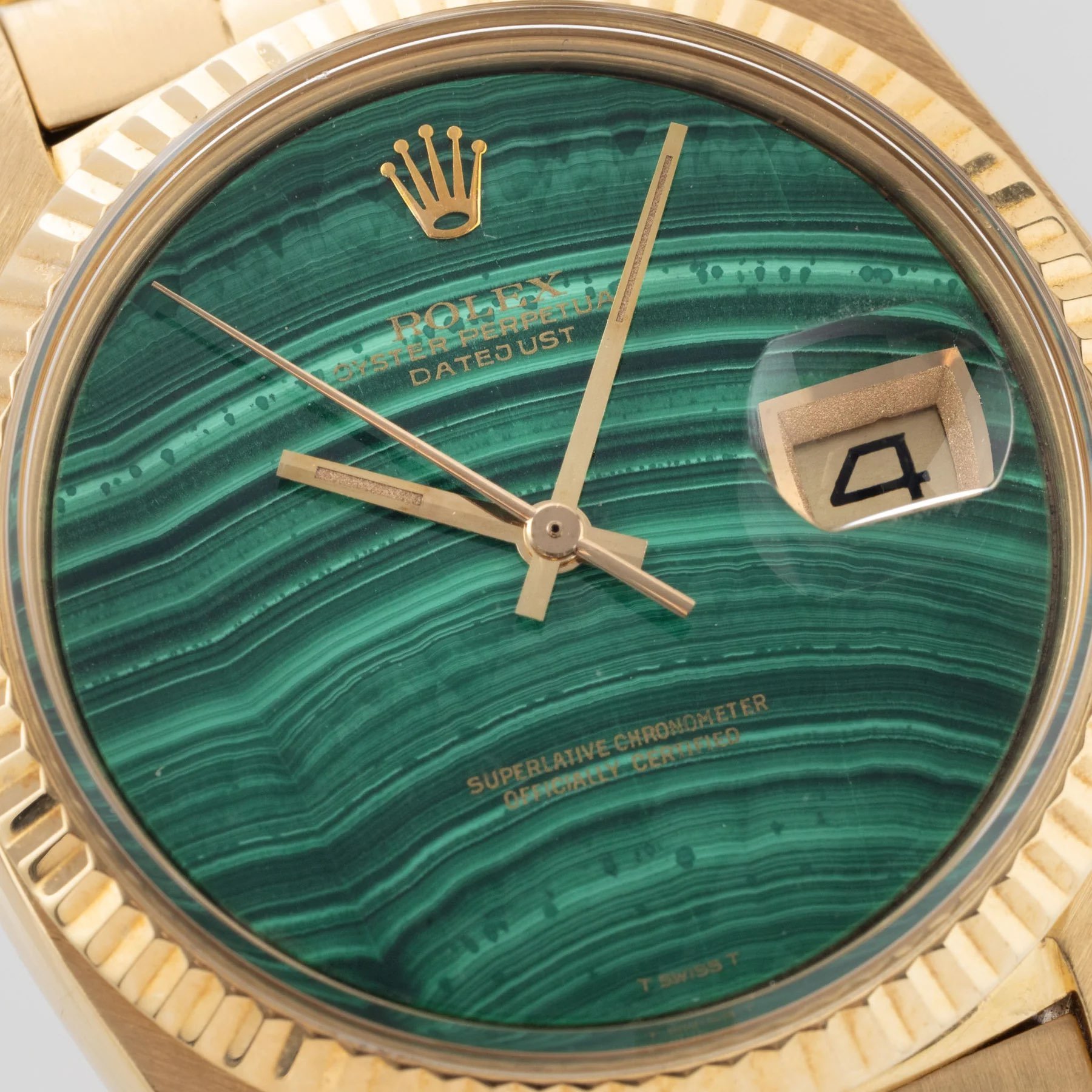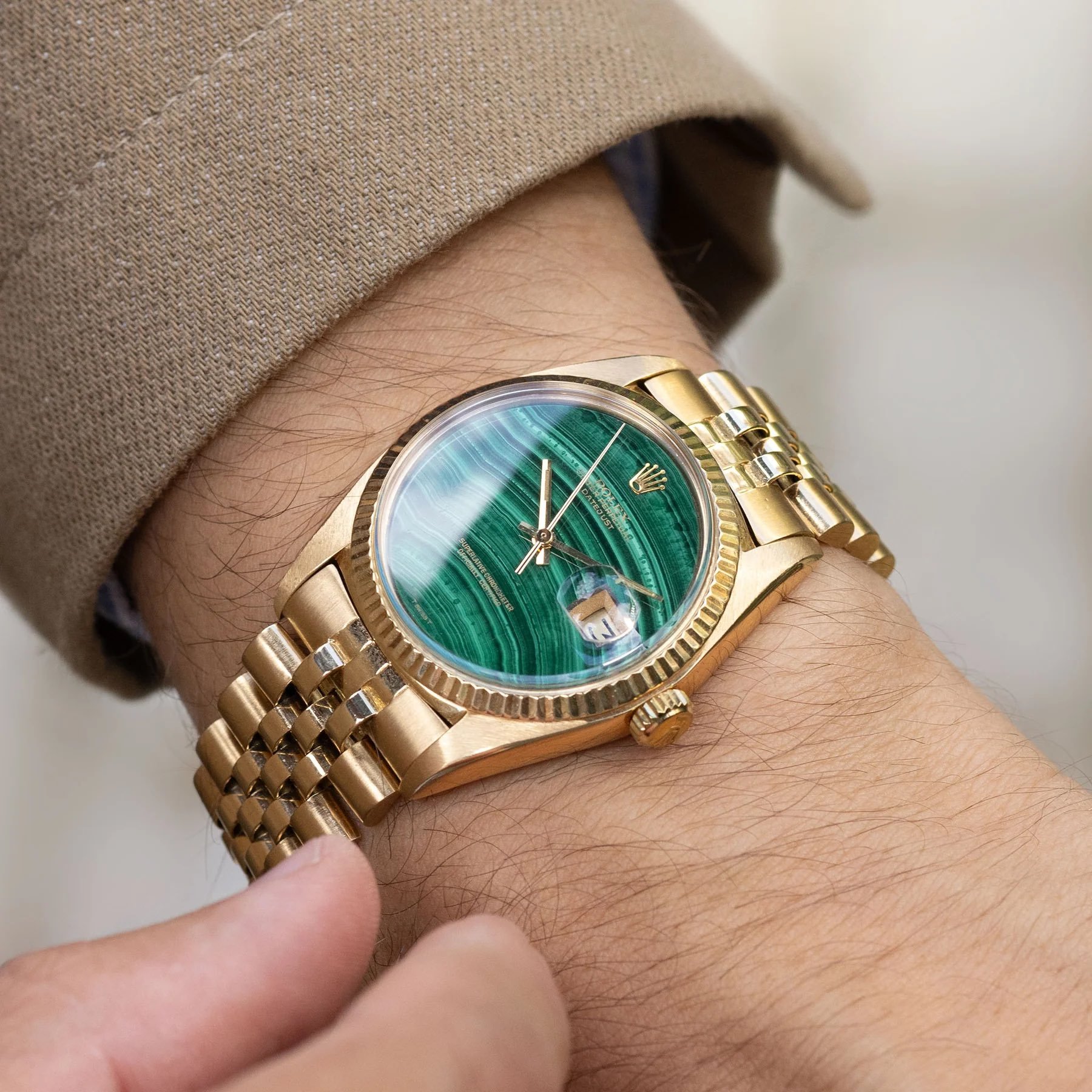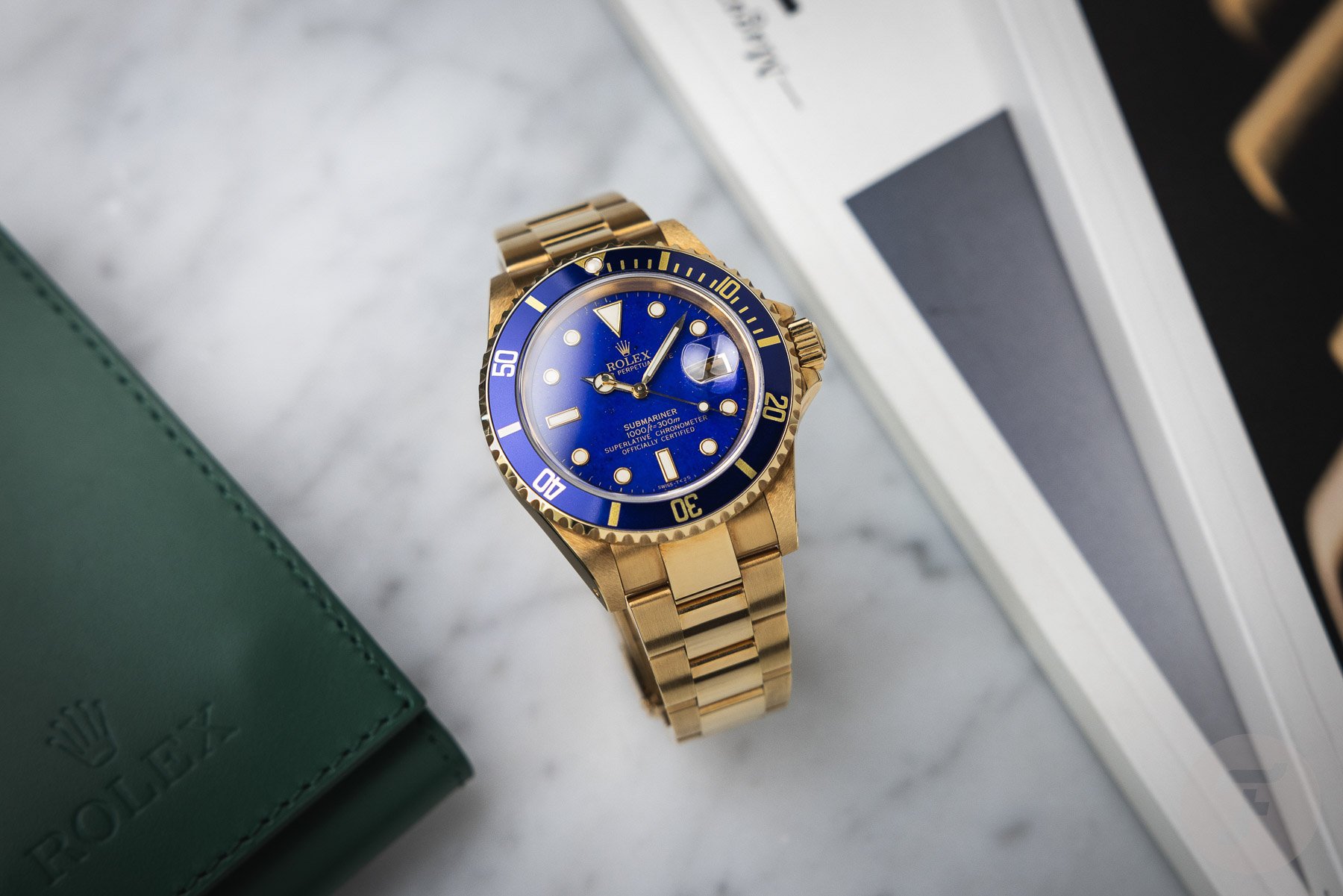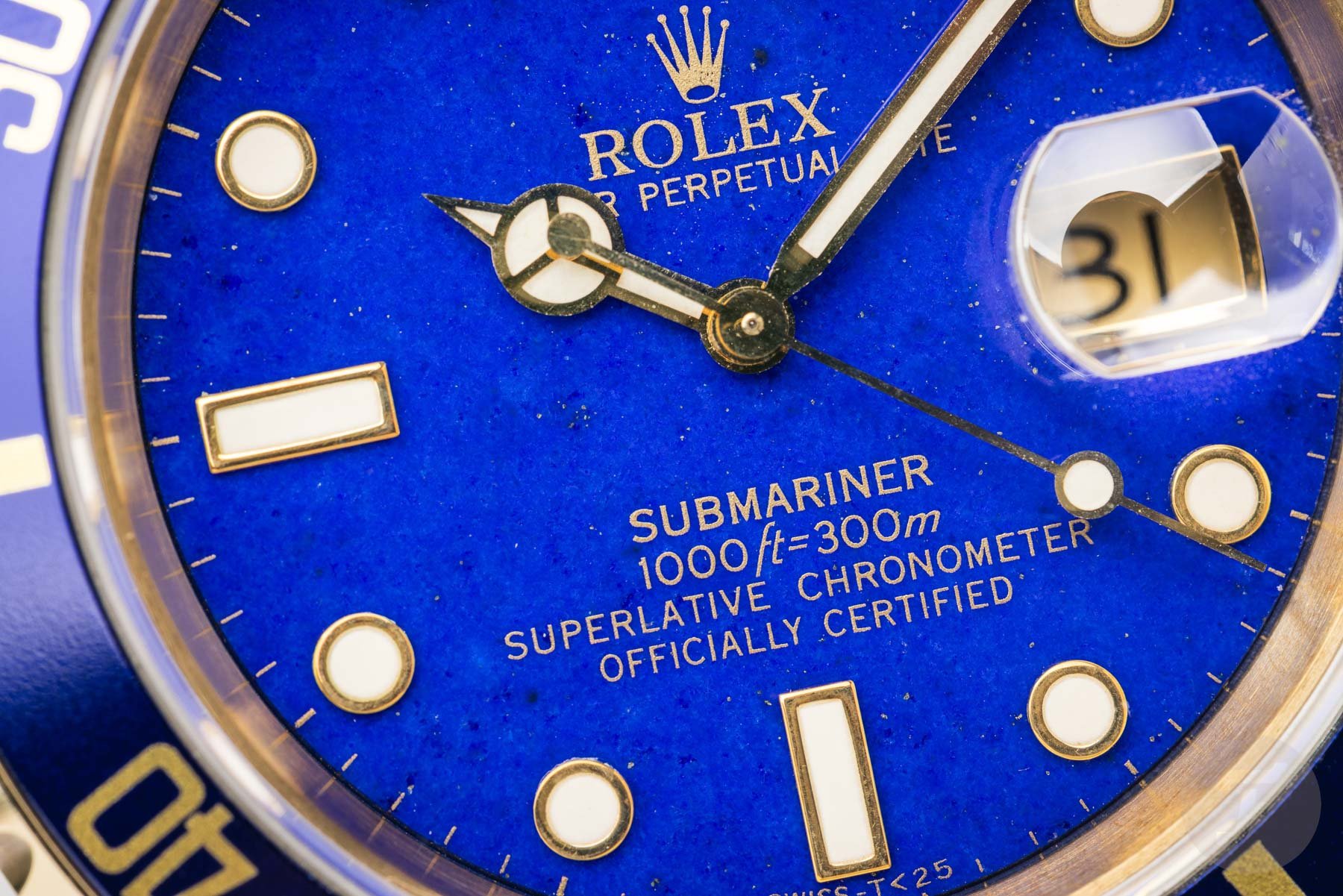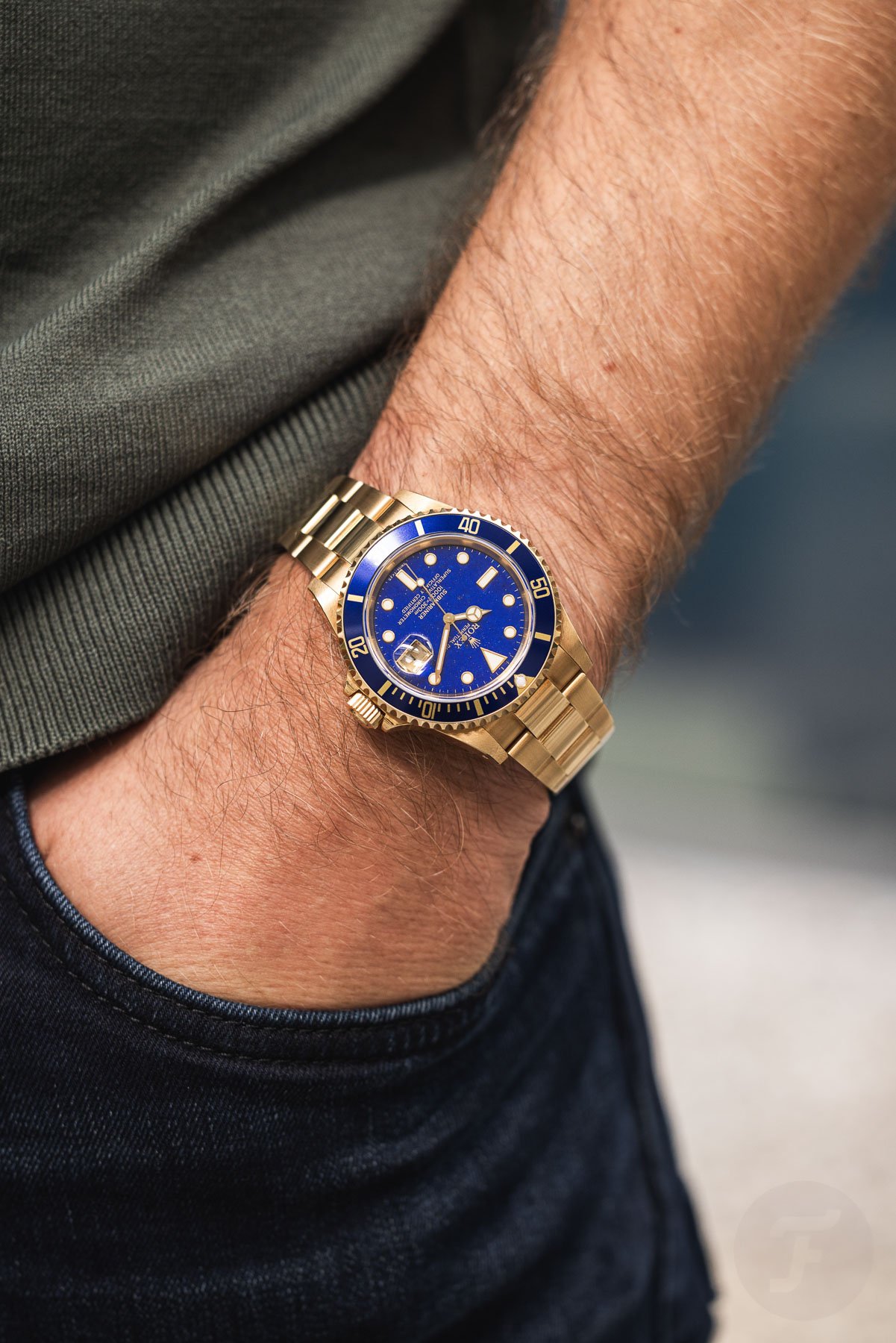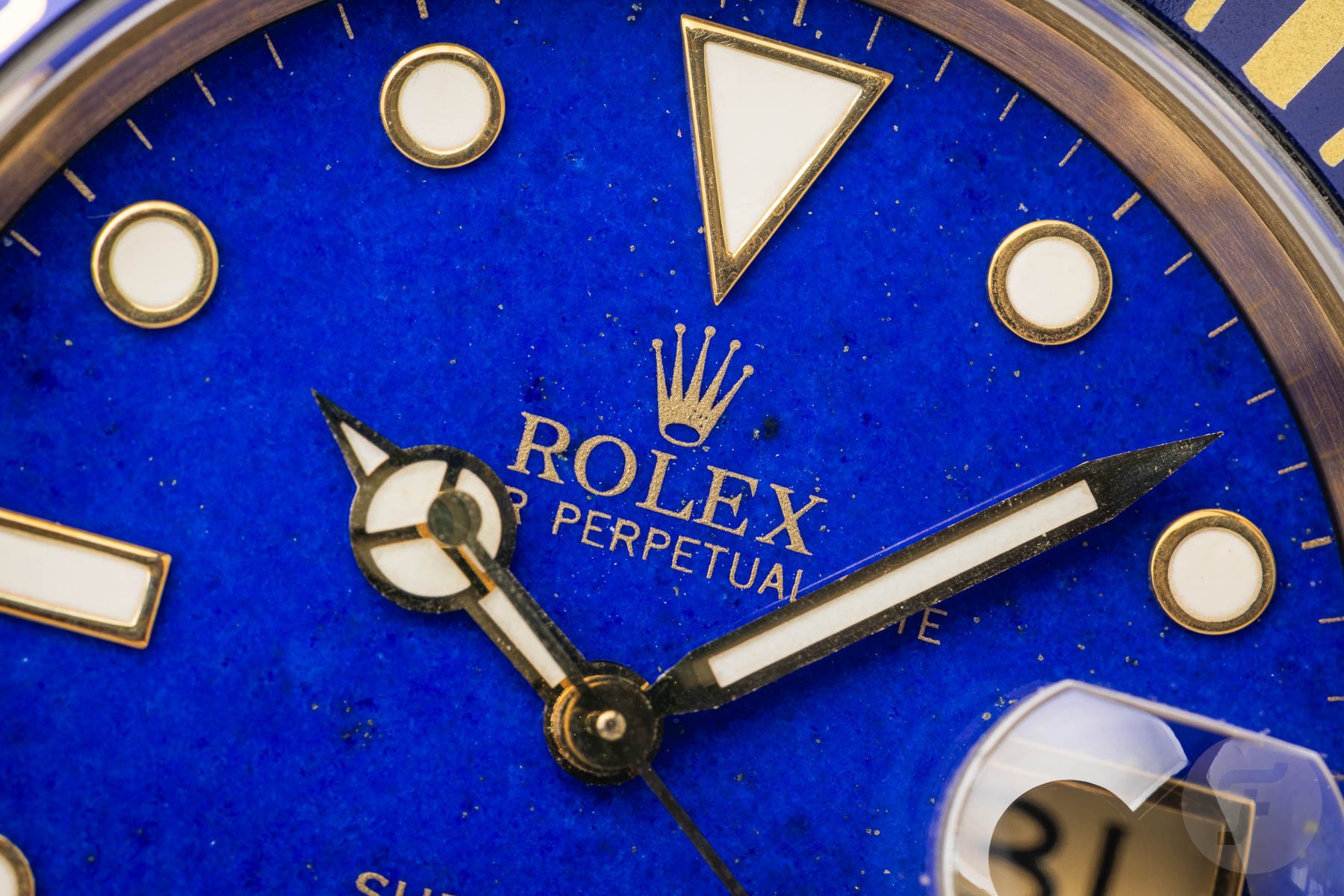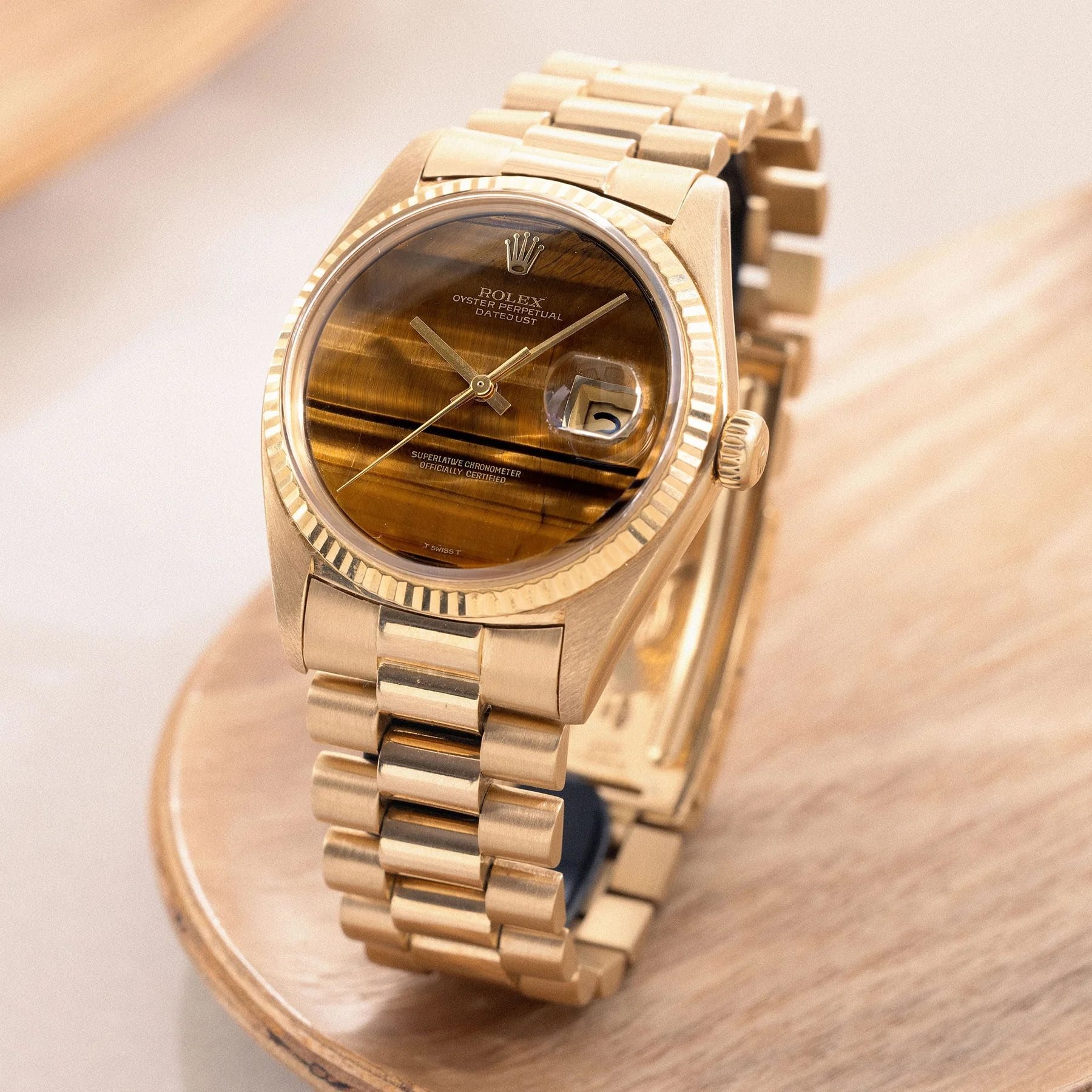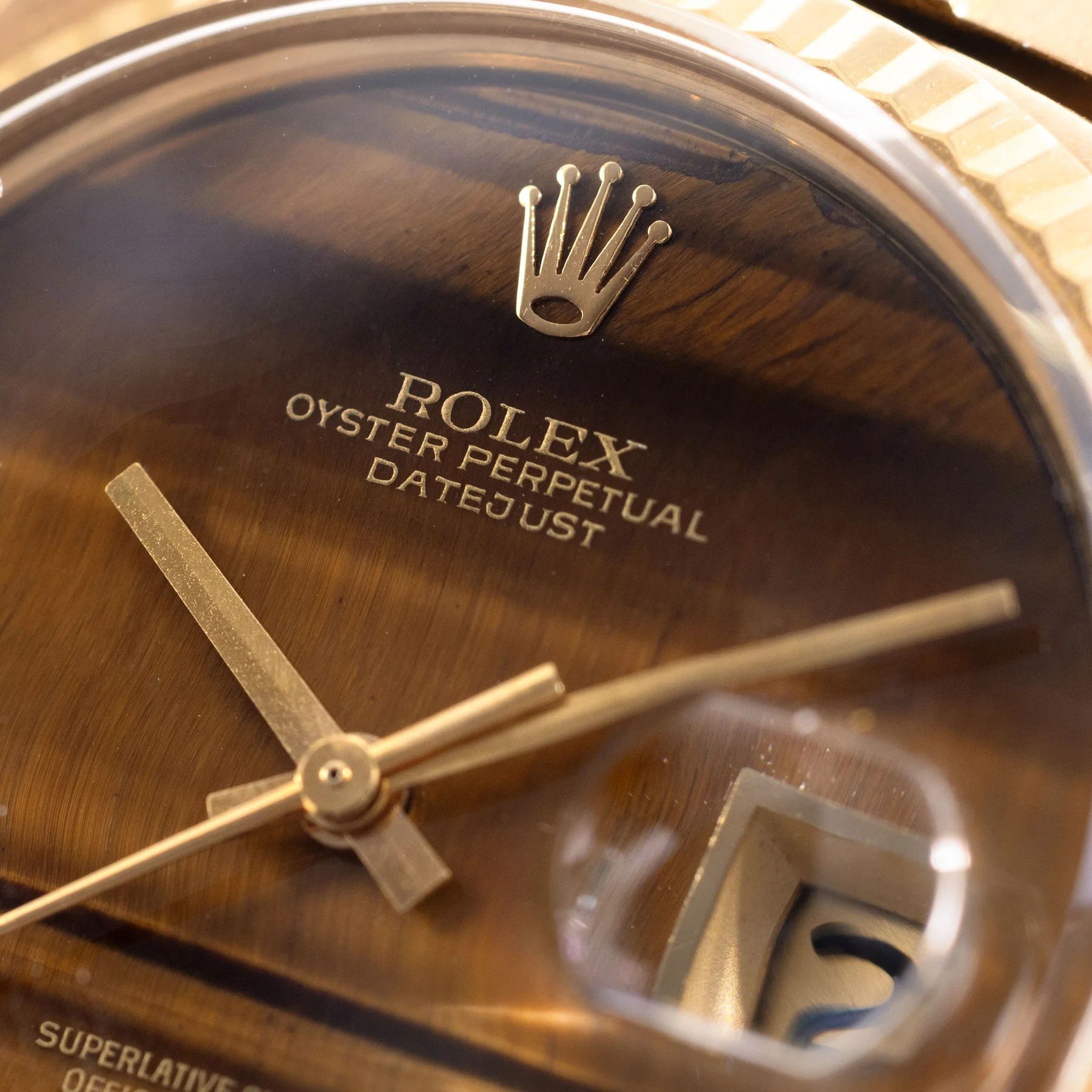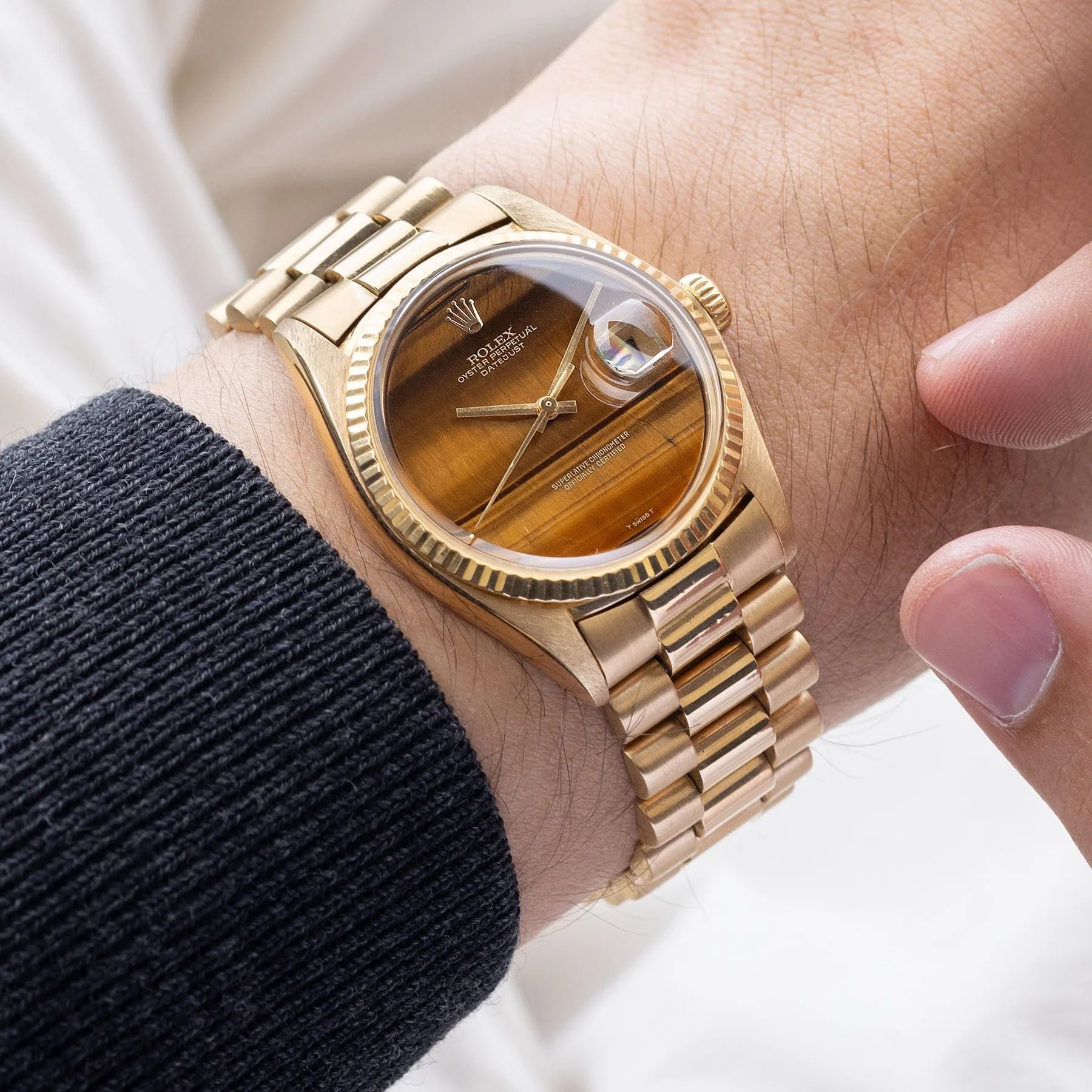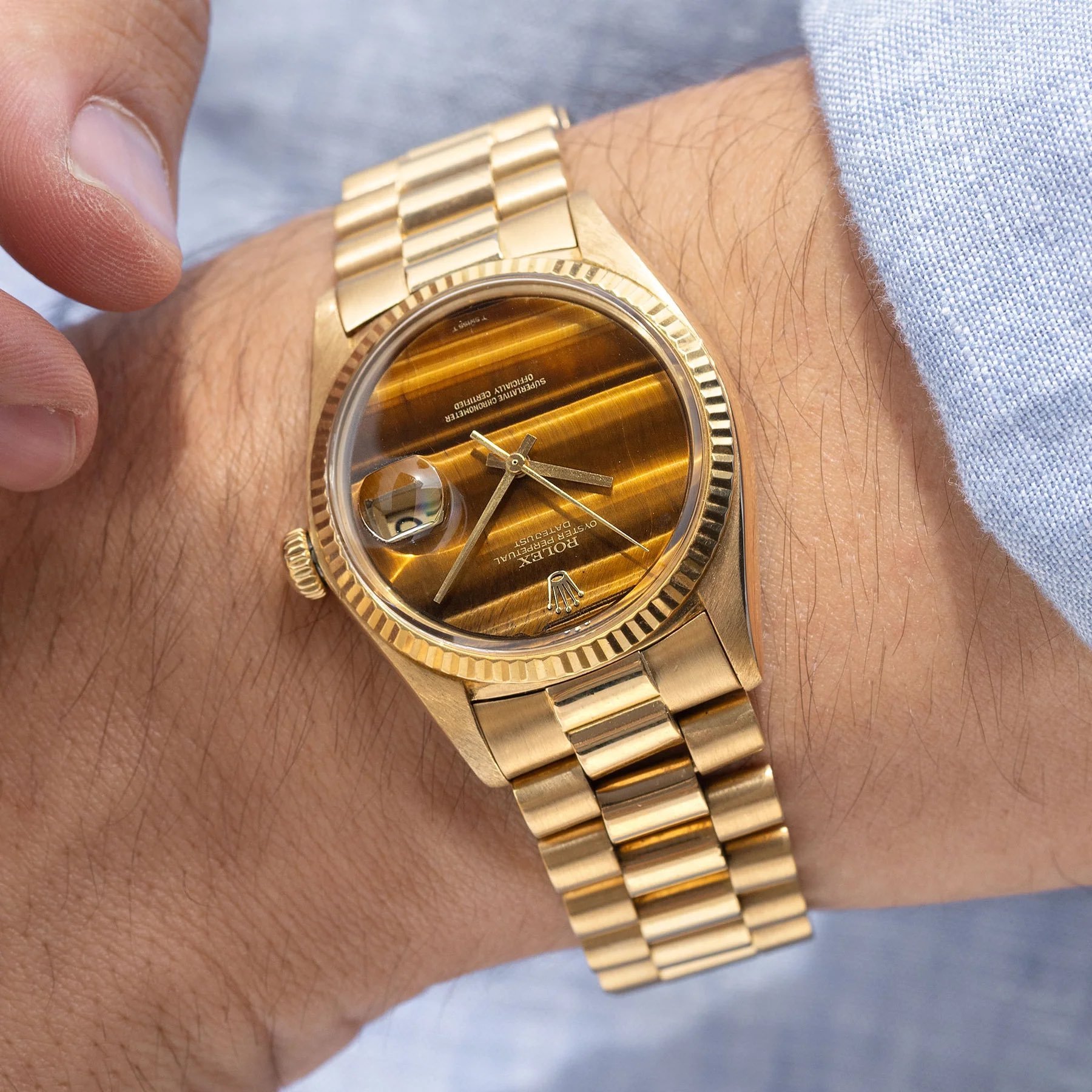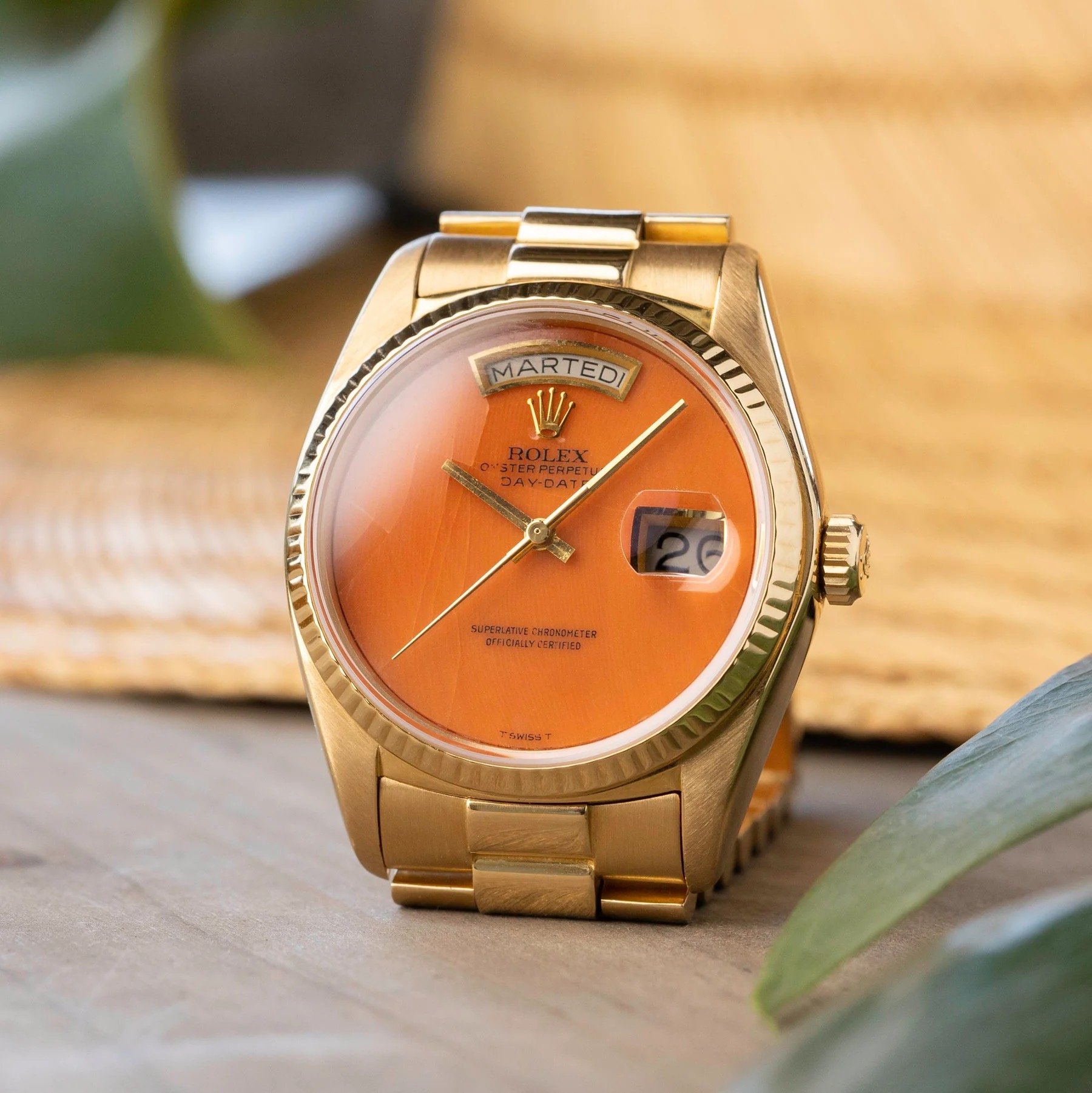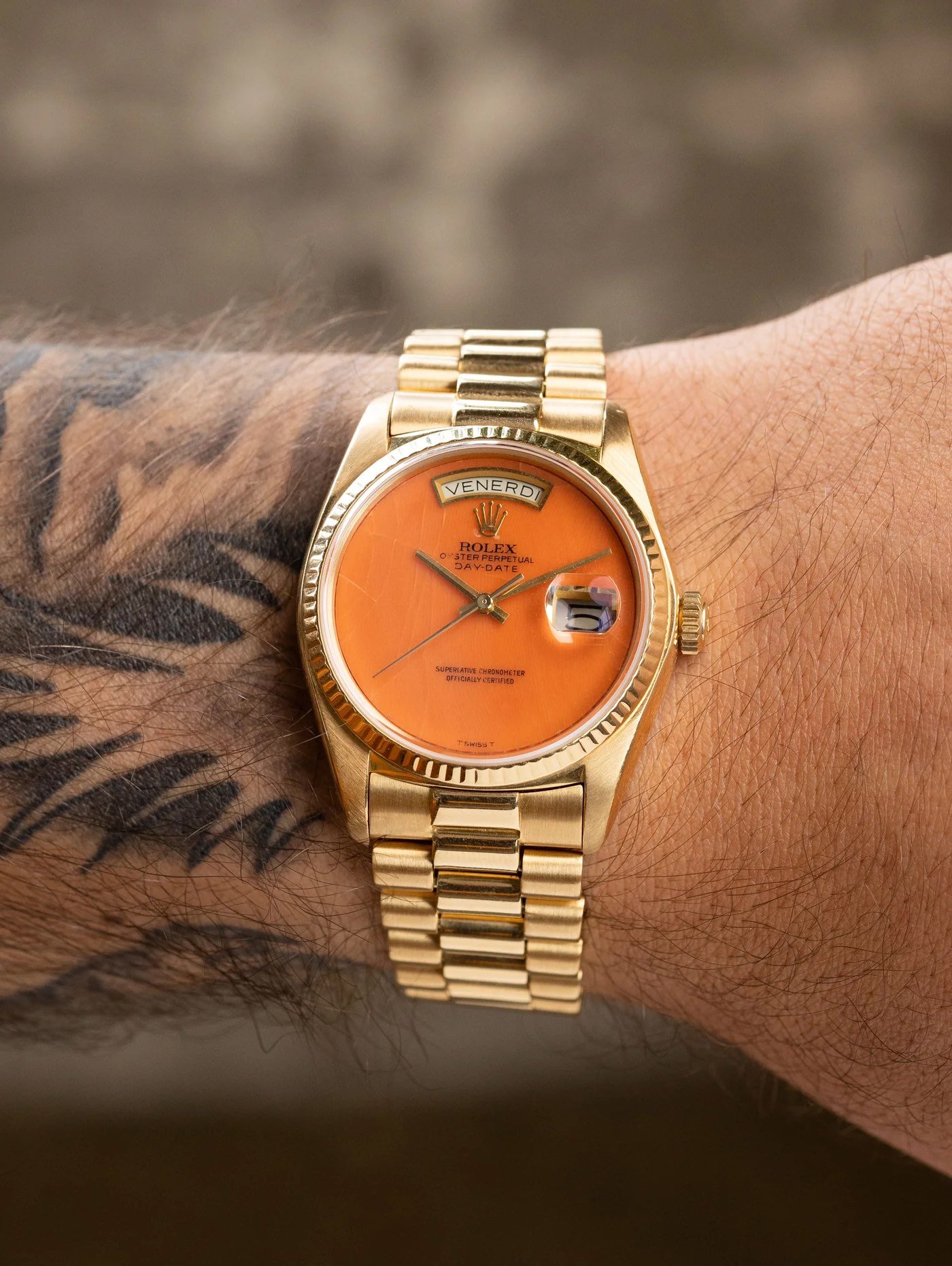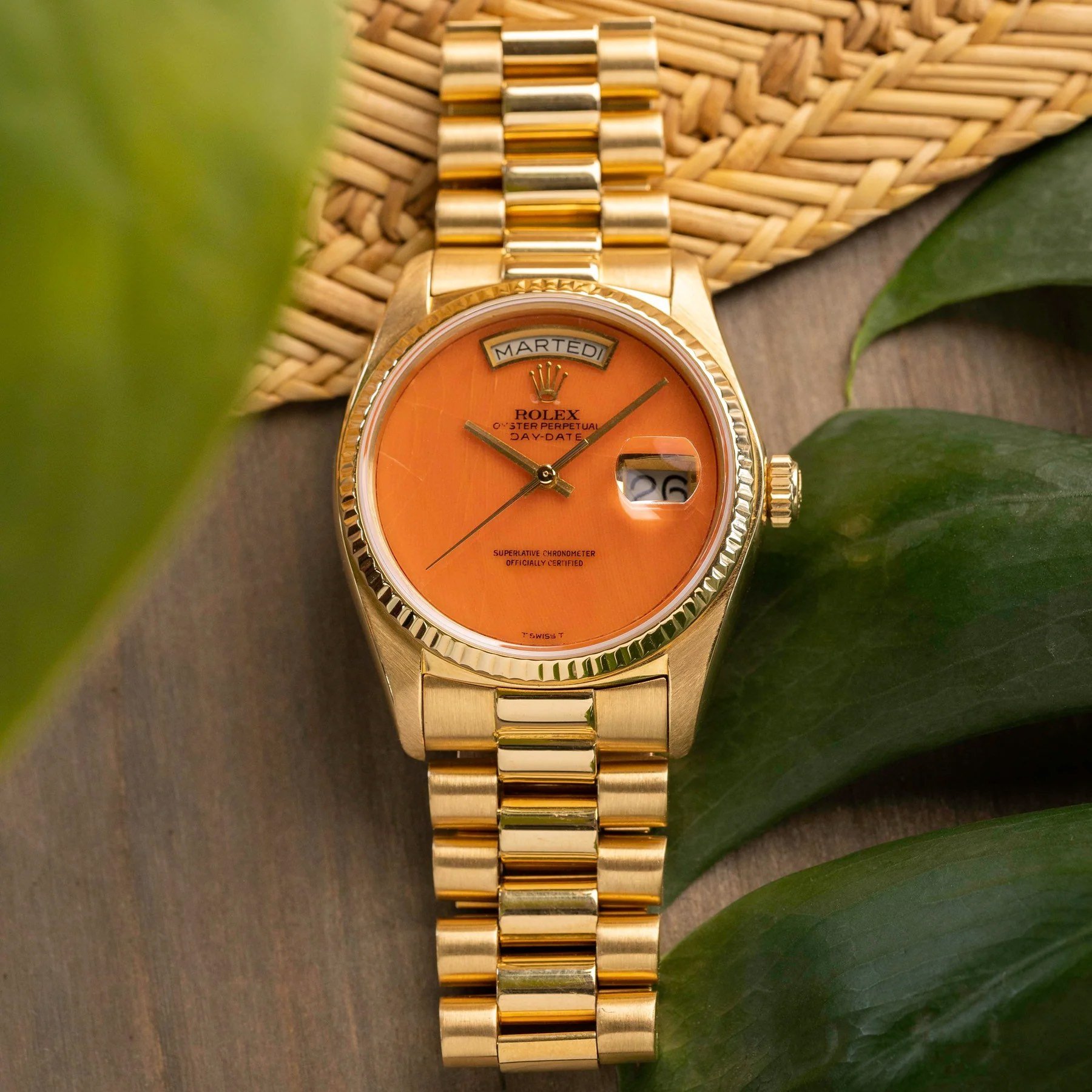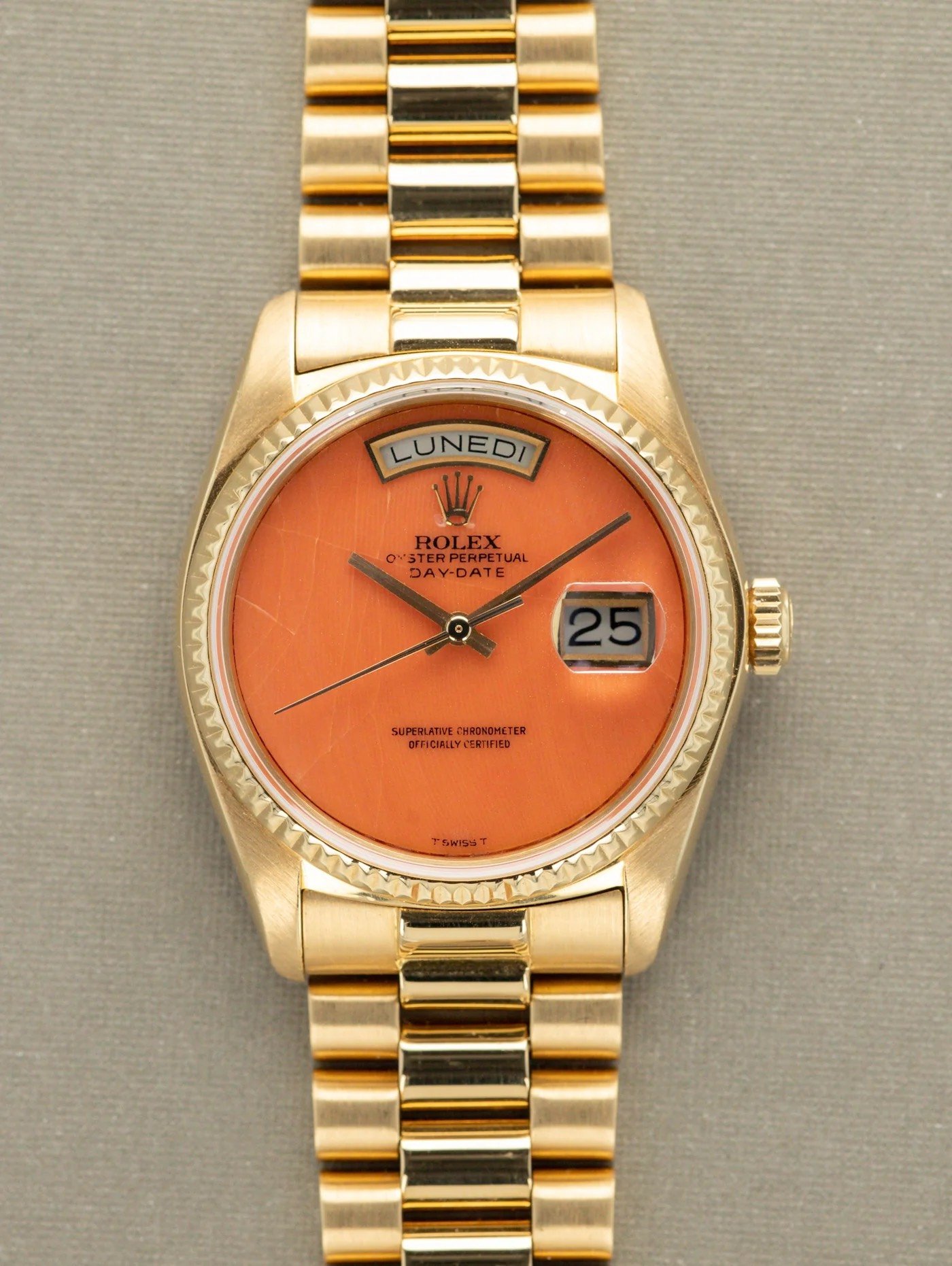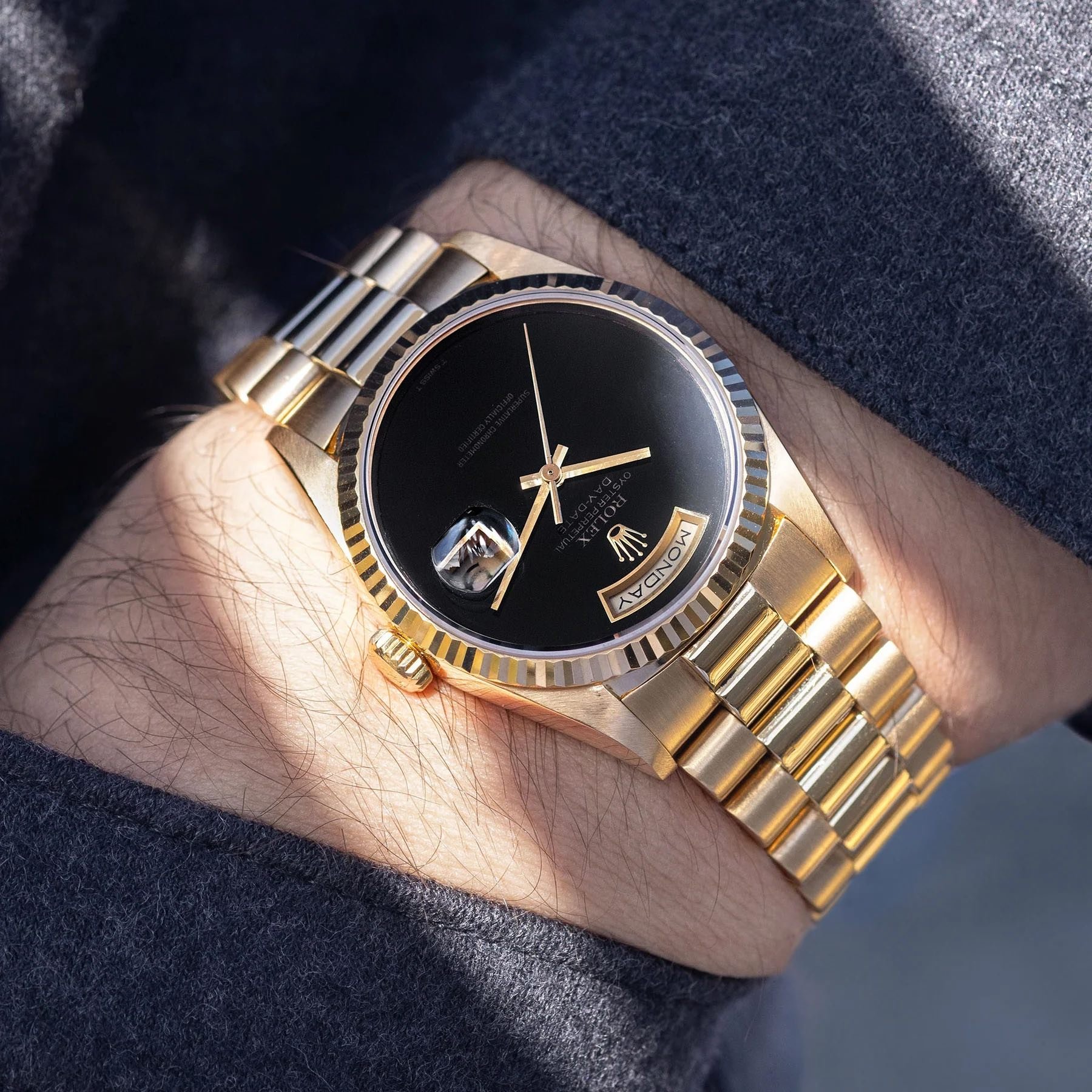Fratello’s Top 5 Rolex Stone Dials — Featuring Onyx, Lapis Lazuli, Coral, And More
Another Friday, another Top 5! We stay in the Rolex universe this week and check out some of the most amazing Rolex stone dials. The Genevan brand has created exceptional dials through the decades, with the stone dials being the most famous among many watch fans. Taking the step to stone dials this week was easy after checking out five gold Datejusts last Friday. Some of those watches were available with brilliant stone dials, so that’s why we have picked our five favorites this time. This week, it’s not about specific Rolex models but the beauty of some amazing dials. Let’s find out more.
Rolex stone dials have become famous the world over. Collectors are willing to pay a premium for them, and honestly, we completely get it. Some of the stone dials are simply breathtaking. Rolex introduced them in the 1970s, and they haven’t left the collection since. But stone dials are not just available for every model. Initially, dealers could order them on request for the Day-Date and the Datejust for an additional cost. Later, stone dials were also available for the Submariner and the Cosmograph Daytona, as you’ll see in this article. So, without further ado, let’s take a look at our favorite stone dials.
Rolex stone dials — Onyx
Let’s kick things off with a personal favorite. As some of you might know, I have a thing for the combination of black and yellow gold. Something magical about those two colors wins me over every time. While I love a Day-Date or, even better, a gold Datejust with a regular black dial, a black onyx dial is even more special.
It loses the indices and the minute track, resulting in a super clean and deep black dial. If you have ever seen a black onyx dial, you will understand what makes it so special. Forget about Vantablack, Acktar Black, or Black 4.0. Nothing beats a natural onyx stone.
The initial onyx dials were like those in the pictures and available for the Day-Date refs. 18038 and 18238. Later, Rolex offered black onyx dials with diamond-set 6 and 9 numerals. There was also the option of all diamond indices. But they remove the magic of the dials you see in the pictures. The Crown also used black onyx dials for its Submariner ref. 16618. They are scarce, as you would expect, and hard to distinguish from regular black Submariner dials.
Black onyx dials are the least rare and most popular in the Rolex universe. As you would expect, I perfectly understand why. Asking prices for a pre-owned Day-Date with an onyx dial are roughly between €40K and €50K.
Rolex stone dials — Malachite
Another favorite is malachite. Rolex started using this green stone for its dials in the 1970s, and it is still available today. The unique green hue and the wavy pattern make for a special dial that is only used for the Day-Date and the Datejust.
Just like with the initial onyx dials, Rolex removed the hour markers and the minute track so that customers could enjoy the stone to the fullest. We can quickly agree that diamond markers or any other additions to a dial like this take away from the impact and visual joy that Rolex stone dials should bring.
The watch you see in the picture is a Rolex Datejust ref. 1601/8. This full-gold version of the famous Datejust reference is the perfect canvas for the malachite dial. Rolex would also use malachite in the same clean way for the Day-Date refs. 18038 and 18238. For later six-digit references of the Day-Date, you can also find malachite dials with Roman numerals.
As with the onyx dial, I feel other stone dials are special and best enjoyed without indices. A Datejust ref. 1601 with a malachite dial is difficult to find, especially on the bracelet. Expect to see prices around €50K. We also see similar asking prices for Day-Date refs. 18038 and 18238 with the clean malachite dials. What you get in return is truly something special.
Rolex stone dials — Lapis lazuli
You might recognize the watch in the pictures if you are a regular reader of our Top 5 series. I featured it in our list of the top five full-gold Rolex sports watches a few weeks ago. That list was all about the Submariner ref. 16618, which was available in full gold and looked amazing.
As explained in that article, Rolex offered the same reference with a black onyx dial and a beautiful lapis lazuli dial. While it is not the only Rolex available with a lapis lazuli dial, it is the most surprising and maybe even most impactful.
At first glance, the watch resembles a regular gold Submariner with a blue dial and a bezel. But as soon as you get closer, the brilliance of the dial stands out more and more. We had this very rare Submariner in the office some time ago, and it was nothing short of breathtaking. Robert-Jan wrote an article about the watch, calling it his potential grail.
I can say that it has that power after seeing it in real life. The biggest issue? Submariners with a lapis lazuli dial are extremely rare and go for proper grail money. The same goes for the very few Daytonas fitted with a lapis lazuli dial. A Day-Date or Datejust with a lapis lazuli will be your best bet if you want one. Expect to see prices between roughly €30K and €60K for one of those.
Rolex stone dials — Tiger eye
The tiger eye dial is another Rolex stone dial that must be on this list. While most of us probably associate the words “tiger eye” with the illustrious Rolex GMT-Master “Root Beer,” the actual tiger eye dial might be more impressive. Its unique look is instantly recognizable.
It has a very specific presence that, combined with the Datejust and Day-Date, creates a true statement of ’70s bliss. Having said that, the tiger eye dials were not exclusive to the 1970s; they simply have a look reminiscent of that era.
Unlike many other models, tiger eye dials were only available for yellow gold Datejusts and Day-Dates. I think it’s a match made in heaven as a tiger eye dial in combination with white gold or rose gold would be a mismatch. Additionally, all tiger eye dials have no hour markers or minute track, so Rolex kept them as pure as possible. Admittedly, however, reading the time on these dials can sometimes be hard since gold hands do not contrast strongly with the tiger eye.
But what these dials sometimes lack in practicality, they make up for in style and character. Unlike the previous stone dials, a tiger eye dial is not as expensive. Expect prices for a gold Datejust with a tiger eye dial to start under €20K on a leather strap. On a bracelet, the asking prices range roughly from €25K to €35K. A Rolex Day-Date with a tiger eye dial goes for significantly more, starting at roughly €40K and moving up to €60K for some.
Rolex stone dials — Coral
Our last pick is technically not a stone dial. While Rolex made it part of its stone dial options, coral is formed through a biological process and is an organic gem. But that won’t spoil our fun as the coral dials are something else. The coral dials Rolex uses for its watches are a beautiful shade of orange.
Combined with yellow gold, it makes for another stunning ’70s style statement that is hard to beat. These special dials are predominantly found in the Genevan brand’s Day-Date models. The Datejust models with coral dials were Lady-Datejust versions, not the classic 36mm references.
Like most of the previous Rolex stone dials, the brand also removed the hour markers and the minute track on the initial coral dials. By doing so, the dial makes a great impact. These dials are rather rare and also very popular. As a result, they are among the most expensive stone dials out there. Expect asking prices to start around €40K and move up quickly for ones in great condition.
What you get in return is unique in more than one way. Not only are the color and texture unique, but because this is technically not a stone dial, it is one of those Rolex anomalies that collectors love. Who are we to disagree? But most of all, we love the look of the precious coral dials.
Final thoughts on the top five Rolex stone dials
There you have it — our favorite Rolex stone dials in no particular order. Obviously, there are a lot more stone dials that we could have picked. That’s why we are curious to find out what some of your favorites are. Let us know in the comments section, and we will see you next week for another installment in this series!
Featured image: Bulang & Sons

